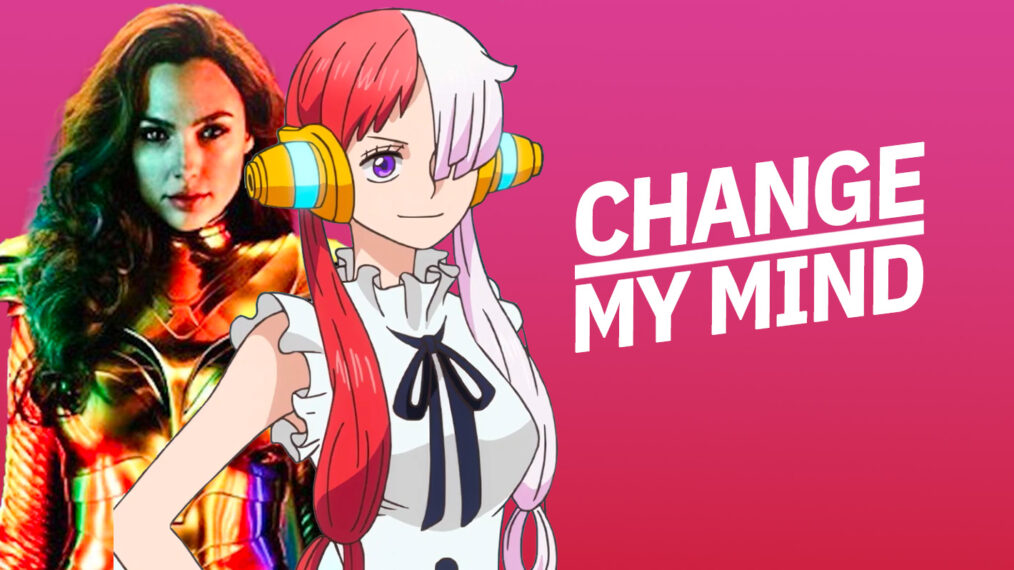Anime Is the New Marvel — Superheroes Are Out, Japan Is Rising

Marvel movies just ain’t hitting the way they used to.
You’d be hard-pressed to find a casual moviegoer, much less a diehard fan, who hasn’t been disappointed in Phase 4 of the Marvel Cinematic Universe. Every flick since 2019’s Infinity War, especially the last few Kevin Feige joints, have been lackluster affairs, to say the least.
On the television front, Marvel’s latest Disney+ offerings — Secret Invasion, She-Hulk, Ms. Marvel, and Moon Knight — have also underwhelmed. Fans and critics alike are losing interest in the events within the MCU.
Marvel’s missteps these past few years should have opened a Batcave-sized door for DC Comics to step through. Alas, the DC Universe also seems in disarray. Last year’s Black Adam was the latest in a string of box office bombs, and a behind-the-scenes shakeup now sees James Gunn shaping his own cinematic universe. The future of Gotham looks bleak.
Given the trail of comic book car crashes and superhero fatigue, it might be time to start looking for something new to replace Marvel’s dominance. What sounded impossible just a few years ago now seems like a reasonable question: Could another genre actually topple the mighty Thanos?
Maybe one already has. Let’s run the numbers.
To illustrate, let’s compare two movies released during the pandemic. First, consider Black Widow, from Marvel Studios, released in 2021. It amassed a decent $379.8 million at the worldwide box office while scoring a 79 on Rotten Tomatoes. By recent Marvel standards, that’s a formidable outing.
But compare that to the Demon Slayer movie, an anime released a year prior that raked in $507 million worldwide and scored 98% on Rotten Tomatoes. It was the top-grossing film in the world in 2020.
And Demon Slayer is no outlier. Anime titles have been equalling or outperforming superheroes for a while.
Consider the DC film Birds of Prey, which, despite receiving fan praise, fell short of breaking even financially, earning $205.3 million at the box office. The same goes for Wonder Woman 1984, which earned even less, $169.6 million, but without any of the audience support.
Contrast that with the long-running franchise One Piece, which released its first worldwide theatrical effort, One Piece Film: Red, to the tune of $246.6 million. And new franchises are coming, like the new manga and anime series JuJutsu Kaisen, which released a theatrical film in 2021 that accumulated $196.3 million at the box office. It’s like anime stole Thor’s hammer and has been beating Marvel to a pulp with it.
Granted, those numbers are, to some degree, bolstered by international audiences turning out for homegrown products. But that just helps underscore the dire point: Whatever built-in advantage America once had, it’s slipping away.
Streamers have sounded the alarm bells and are committing substantial resources to grow their anime output. Here’s a quick tour:
- Max, alongside DC Comics, houses all of Studio Ghibli’s massive and critically acclaimed body of work, including the films of Hayao Miyazaki.
- Hulu, a subsidiary of Disney, has been beefing up its anime section with titles like Bleach: Thousand-Year Blood War.
- Netflix not only has a rather robust anime collection, with new titles like Captain Laserhawk and Castlevania: Nocturne, but it is the only streamer bold enough to attempt live-action adaptations. One Piece was Netflix’s number-one show for three weeks in a row, and the fervor from One Piece fans, especially during the Year of One Piece, saw that several people who were never fans have now invested in the Straw Hat Pirates.
- Prime Video also offers a nice curation of anime, but for original output, it chooses the route of satirizing the superhero genre with shows like Invincible and The Boys.
In a sense, all of the streamers are playing catch up to Sony, who long ago acquired Funimation to become the number one destination for anime in the West with the anime platform Crunchyroll.
As superhero content finally goes out to pasture like Westerns, the East is rising to replace it. The days of MCU fans packing theaters while cosplaying as their favorite hero have passed. Now, the halls of Comic-Con are lined with troops of anime fans, festooned in their favorite anime character attire.
Just as comics had to claw itself to relevancy, so too did manga, and that breakthrough has made anime the new cool. After all, your favorite rapper probably grew up in the ‘90s and loves anime as much as you do. But it’s not just the rappers. All those ‘90s kids who grew up understanding the power of anime are now in their 30s and in the position to broaden the genre’s horizon.
As superheroes grow more stagnant, the rise of anime becomes more inevitable.
From TV Guide Magazine
How 'Countdown' Recruited Jensen Ackles to Go Full 'Die Hard'
Countdown boss Derek Haas talks creating the character around Ackles, and the cast teases the “Avengers”-like team of the crime thriller. Read the story now on TV Insider.

Birds of Prey (2020) where to stream

Black Adam where to stream













